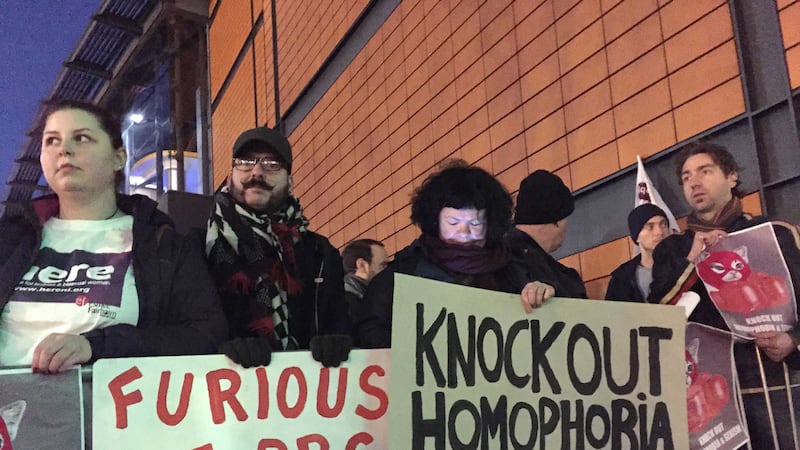Did anybody at the Beeb check on Andy Murray’s opinions on gay rights and his attitude to women on Sunday night before they gave him that Sports Award?
And was he grilled on whether or not Britain should stay in the EU or if he supported air strikes in Syria?
I mean he is a ’personality’, so obviously his opinion on these matters is of vital concern.
He has form, because he came out in support of a Yes vote in last year’s Scottish independence referendum.
But then anyone who was Scottish and in the public eye was sounded out - JK Rowling, Sean Connery and even Wee Jimmy Krankie.
But, why is it that the opinions of someone who happens to be on TV for a few seconds or gains some sort of public recognition suddenly becomes relevant and their observations and opinions, that have nothing to do with what they are famous for, are given so much publicity?
Are we really saying that just because a man can hit someone else harder than his opponent can hit him back, and in some cases even knock the other guy unconscious, that his view on society are important?
The fact that boxer Tyson Fury is a homophobic sexist makes him a knob. An objectionable knob for sure. But why does his opinion matter?
Did anyone sound out Irish gay rights activist Panti Bliss for an opinion after Fury was stripped of his IBF title less than two weeks after he won it?
The notion of the ‘personality’, however minor, as a commentator on matters of public interest is one of the more disturbing aspects of our celebrity culture.
If there is a drought in central Africa, the media will not seek out an expert in humanitarian relief or agriculture for an insight. No, it will be Bono and if he’s not available Bob Geldof is always up for a quote.
A Tsunami swamps the coasts of an island nation in the Pacific Ocean, why would you seek a comment from someone who has made a study of climate change in the region when you could get Leonardo Di Caprio.
Bob Dylan is probably to blame. While folk singers had been ‘political’ for decades, usually to the left of the debate, Dylan was the first major league singer to comment on society in his lyrics.
Beatle John Lennon took it a stage further. From wanting to hold people’s hand he was suddenly holding press conferences about giving peace a chance and suggesting that war was a bad idea.
One of the most iconic images of the 1960s is of a helicopter landing on the lawns of a stately home from which Rolling Stone singer Mick Jagger emerges and languidly saunters, tossing his mane of shoulder length hair.
It’s 1967 and his court conviction, along with Stones guitarist Keith Richards, for possession of drugs had just been quashed and he was being brought in for an ITV World in Action special.
At 24, Jagger, the face of anti-establishment youth culture, was challenged by a four-man panel of British establishment figures that included the editor of the Times William Rees-Mogg, Lord Stow Hill and the Bishop of Woolwich Dr John Robinson.
The establishment must surely have been rocked when Jagger told them that young people in 1967 Britain wanted to "just have as good a time as possible."
It is not to say that people in the public eye shouldn’t have an opinion on such matters, or even be sounded out, but it is the weight that is given to them.
Would anyone be surprised if the winner of the Great British Bake Off spoke frankly about the dangers posed by Kim Jong-un in North Korea or Nathan Carter voiced his concerns about the flaws in the carbon trade-offs between rich and poor countries as part of the global effort to tackle global warming?
One of the most quoted commentators in Britain is minor reality TV personality turned newspaper columnist Katie Hopkins.
This is the woman who said that gunboats should be used to turn back refugees or that people with dementia were "bed blockers" taking up hospital beds.
But why should we care what this silly woman thinks? Why do the odious opinions of someone whose claim to greatness is that she was once a contestant on the Apprentice and I’m a Celebrity Get Me Out of Here matter?
She’s only a newspaper columnist out for a cheap headline. What the hell would a newspaper columnist know anyway?








